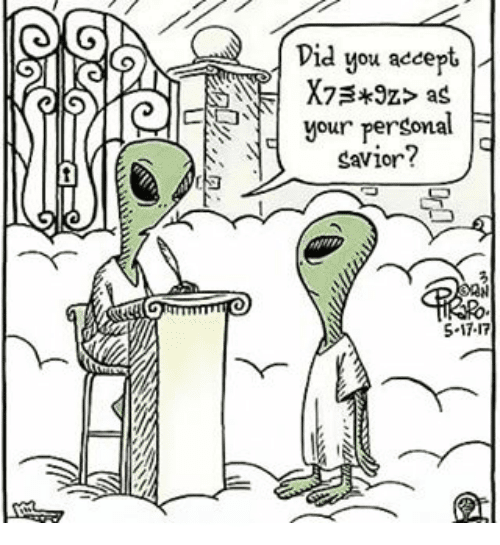
I’m often asked if I had a personal relationship with Jesus — the Evangelical gold standard for what it means to be a Christian. Many Evangelicals think that I can’t have had a personal relationship with Jesus; that a true relationship with Jesus stays steady and sure until death. That I am now an atheist means I never had a super-duper personal relationship with the second part of the Godhead. If this claim is true, it means that I spent the first fifty years of my life as a deceived Christian. No matter what I point to in my life that suggests otherwise, Evangelicals say I was deceived. Imagine the sheer level of deception required for me to pull off such a feat. This should be enough for Evangelicals to see that their claim that I was (and still am) deceived is wrong, but their soteriology keeps them from doing so. You see, my story poses a big problem for Evangelicals who believe in once-saved- always-saved or eternal security. By necessity, they must conclude that either I never was a Christian or I am still a believer. Both claims are, on their face, irrational, contradictory, and absurd. As I have told such Evangelicals countless times before, “Just because you can’t square your peculiar theology with my story is your problem, not mine.” I know what I know. I once was saved, and now I am not.
Over the years, I have asked people who claim I never was a Christian for evidence for their claim. The only evidence forthcoming is proof texts from the Bible — as interpreted by my critics. However, doesn’t the Bible say that we judge a person by the fruit he produces; that good works are the measure of a man or a woman? Have you never noticed that judgmental, hateful Christians always want to focus on theology, not how they live out their beliefs? They know their behavior betrays their beliefs, so they focus on theological or philosophical arguments instead. However, the Bible is clear: the measure of a person is how he lives.
According to this standard, I measure up quite well. I spent most of my adult life loving and serving others, including the poor, the imprisoned, and the homeless. I invested myself in the lives of my parishioners, at times at the expense of my partner and children. I preached with or without pay. Why? Because I believed I had a higher calling to preach the gospel to the unsaved and teach the Bible to Christians. What mattered was the work of the ministry. I selflessly devoted myself to this calling for twenty-five years.
If I never was a Christian, how do my critics explain the aforementioned evidence to the contrary? I have repeatedly challenged my critics to find one person who knew me at the time I was a pastor who would say they knew I never was a Christian. I’m confident that no evidence will be forthcoming. I am not perfect, not now, nor when I was an Evangelical pastor. I “sinned” just like every other Christian, yet the bent of my life was towards holiness. At best, I was an imperfect, falible man who sincerely wanted to help others. And that, my friend, is what I still try to be today.
Bruce Gerencser, 68, lives in rural Northwest Ohio with his wife of 47 years. He and his wife have six grown children and sixteen grandchildren. Bruce pastored Evangelical churches for twenty-five years in Ohio, Texas, and Michigan. Bruce left the ministry in 2005, and in 2008 he left Christianity. Bruce is now a humanist and an atheist.
Your comments are welcome and appreciated. All first-time comments are moderated. Please read the commenting rules before commenting.
You can email Bruce via the Contact Form.
